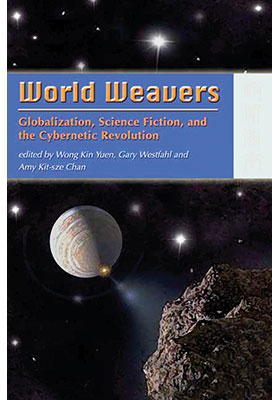World Weavers
Globalization, Science Fiction, and the Cybernetic Revolution
(構築世界:全球化、科幻小說與網絡革命)
ISBN : 978-962-209-722-3
November 2005
320 pages, 6″ x 9″
Ebooks
World Weavers is the first ever study on the relationship between globalization and science fiction. Scientific innovations provide citizens of different nations with a unique common ground and the means to establish new connections with distant lands. This study attempts to investigate how our world has grown more and more interconnected not only due to technological advances, but also to a shared interest in those advances and to what they might lead to in the future.
Science fiction has long been both literally and metaphorically linked to the emerging global village. It now takes on the task of exploring how the cybernetic revolution might transform the world and keep it one step ahead of the real world, despite ever-accelerating developments. As residents of a world that is undeniably globalized, science-fictional and virtual, it is incumbent on us to fully understand just how we came to live in such a world, and to envisage where this world may be heading next. World Weavers represents one small but significant step toward achieving such knowledge.
“World Weavers makes a timely and significant contribution to the critical literature on contemporary science fiction and globalisation. It includes a broad range of theoretical approaches and an excellent overview of the field, and should appeal to readers interested in critical accounts of the genre, as well as the interdisciplinary crossovers to be found in cyberculture.” —Jenny Wolmark, Department of Design, University of Lincoln, UK, and author of Aliens and Others: Science Fiction, Feminism and Postmodernism


